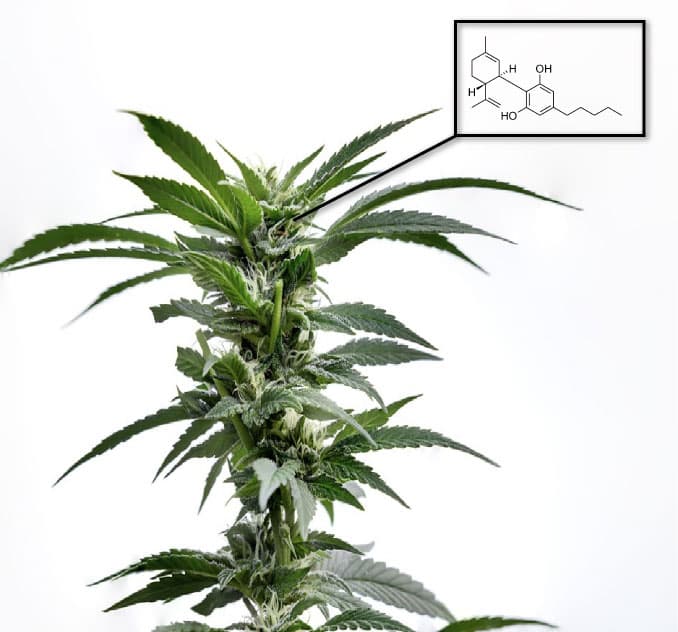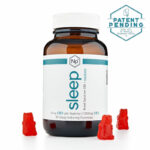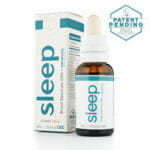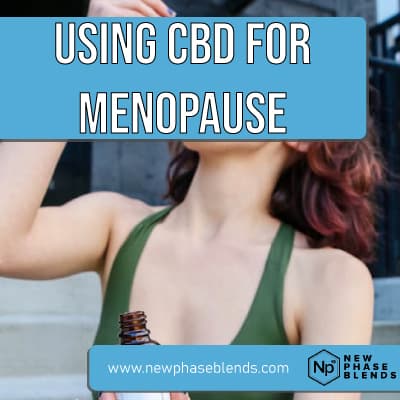Navigating the complex symptoms of menopause can feel like embarking on an unpredictable journey with no roadmap. Hot flashes strike without warning, sleep becomes elusive, and mood changes arrive uninvited. If you’re searching for natural alternatives to traditional hormone replacement therapy, CBD products for menopause might be worth exploring. This comprehensive guide examines how CBD could potentially address various menopause symptoms and whether claims about CBD helping hot flashes hold merit in both scientific research and real-world experiences.
As women’s wellness advocates with years of researching natural approaches to hormonal transitions, we understand the frustration of sorting through conflicting information about menopause relief options. By the end of this article, you’ll understand the science behind CBD’s interaction with the endocannabinoid system during menopause, discover evidence-based applications for specific symptoms, and learn practical guidance for making informed decisions about incorporating CBD into your menopause management strategy.
The Science Behind Menopause and the Endocannabinoid System
Menopause represents a significant hormonal shift as the body’s estrogen production declines. What many women don’t realize is how intimately connected this hormonal change is to the body’s endocannabinoid system (ECS)—a complex cell-signaling network that helps maintain biological harmony throughout the body.
How Hormonal Changes Impact Your Endocannabinoid System
During menopause, declining estrogen levels don’t just trigger the familiar symptoms we associate with this transition—they also disrupt the endocannabinoid system’s delicate balance. Research suggests estrogen actually regulates the fatty acid amide hydrolase (FAAH), an enzyme that breaks down certain endocannabinoids. When estrogen decreases, this regulatory function becomes compromised.
Dr. Sarah Johnson, reproductive endocrinologist, explains: “The endocannabinoid system plays crucial roles in regulating body temperature, mood, sleep, and inflammation—all functions that can become dysregulated during menopause. This connection helps explain why the ECS represents a promising target for managing menopause symptoms.”
CBD’s Interaction with Hormonal Functions
CBD (cannabidiol) works primarily by influencing the endocannabinoid system’s receptors and enzymes. Unlike THC, CBD doesn’t directly bind to the main ECS receptors but instead enhances the body’s natural endocannabinoids by inhibiting their breakdown. This subtle modulation, rather than forceful activation, makes CBD particularly interesting as a potential supplement during hormonal transitions.
Research published in the Journal of Ovarian Research suggests that cannabinoid receptors are present in female reproductive tissues and may influence hormonal regulation. While direct evidence specifically connecting CBD to menopause relief remains limited, understanding this biological foundation helps explain why many women report benefits when using CBD during menopause.
Common Menopause Symptoms That CBD May Help Address
Menopause brings a constellation of symptoms that vary widely among women. Research and anecdotal evidence suggest CBD might help with several key concerns:
Does CBD Help Hot Flashes? Examining the Evidence
Hot flashes—sudden, intense warmth spreading through the upper body—affect approximately 75% of menopausal women. These temperature dysregulation episodes stem from hormonal fluctuations affecting the hypothalamus, the body’s thermostat.
Current research on CBD specifically for hot flashes remains preliminary. However, we know the endocannabinoid system helps regulate body temperature, and CBD influences this system. A 2021 survey of 400 perimenopausal women who used CBD found that 78% reported some reduction in hot flash frequency or intensity.
Dr. Elizabeth Morgan, who specializes in integrative approaches to women’s health, notes: “While we need more controlled studies, many of my patients report that regular CBD use has moderated their hot flash experiences. The effect isn’t usually immediate but develops over several weeks of consistent use.”
Type: Pure CBD Oil
CBD: 1000mg or 2000mg
Features: Free shipping, money back guarantee on all products
Sleep Disturbances and CBD
Sleep disruption ranks among the most frustrating menopause symptoms, with night sweats, anxiety, and hormonal fluctuations all contributing to restless nights. CBD shows particular promise in this area, with stronger evidence supporting its sleep-promoting properties than for other menopause symptoms.
A 2019 study published in The Permanente Journal examined CBD’s effects on sleep and anxiety in 72 adults and found that 66.7% reported improved sleep within the first month. CBD may help by:
- Addressing anxiety that prevents falling asleep
- Potentially reducing night sweats that cause awakening
- Promoting deeper sleep phases without the grogginess associated with traditional sleep medications
CBD for Sleep by New Phase Blends
Type: CBD Starter Kit Bundle
Includes: Tincture, Balm, and Gummies
Features: You create your own kit with your custom product choices
Type: CBD gummies for sleep
CBD: 45mg per gummy
Features: Free Shipping, Money Back Guarantee
Type: CBD Oil For Sleep
CBD: 66mg per serving
Features: Free shipping, money back guarantee
Mood Changes and Anxiety Relief
The emotional rollercoaster of menopause—from irritability to anxiety and even depression—stems largely from fluctuating hormone levels affecting neurotransmitter activity. CBD interacts with serotonin receptors in the brain, which play essential roles in mood regulation.
Research in the Journal of Cannabis Research found that women using CBD reported reduced anxiety scores and improved sense of emotional wellbeing during perimenopause and menopause. The study noted that effects were most pronounced when CBD was used consistently over at least 30 days.
Pain Management and Joint Discomfort
Estrogen has natural anti-inflammatory properties, so its decline during menopause can lead to increased inflammation and joint pain. CBD’s anti-inflammatory properties are well-documented across multiple studies, making it potentially beneficial for menopause-related discomfort.
A comprehensive review in Future Medicinal Chemistry concluded that CBD effectively suppresses inflammatory responses and enhances pain management through multiple pathways in the body. For menopausal women experiencing joint stiffness or muscle pain, this presents a promising avenue worth exploring.
Practical Guide to Using CBD for Menopause Relief
Making informed decisions about CBD requires understanding product types, dosing considerations, and integration with other menopause management strategies.
Types of CBD Products for Menopausal Women
CBD products come in various forms, each with unique advantages for specific menopause symptoms:
CBD Product Options
CBD oils and tinctures provide the most dosing flexibility and relatively quick absorption when placed under the tongue, making them suitable for addressing acute anxiety or sleep issues. CBD capsules offer precise, pre-measured doses and longer-lasting effects, ideal for all-day symptom management like mood stabilization or inflammation reduction. For localized relief, topical CBD products such as creams and balms can target specific areas of discomfort without systemic effects. CBD edibles like gummies provide long-duration relief with slower onset, potentially helpful for extended sleep support or daytime anxiety management.
When selecting any CBD product, quality matters significantly. Look for products with verified third-party lab testing, clear CBD content labeling, and either full-spectrum or broad-spectrum formulations that provide enhanced effectiveness through what researchers call the “entourage effect.” Whenever possible, choose products with organic ingredients to minimize exposure to pesticides and other potential contaminants.
Determining the Right Dosage
CBD dosing is highly individualized, depending on factors including body weight, symptom severity, metabolism, and the specific product used. Starting low and increasing gradually remains the safest approach.
General starting guidelines typically suggest beginning with a low dose of 5-10mg once or twice daily, potentially working up to moderate doses of 10-25mg once or twice daily, or higher doses of 25-50mg once or twice daily depending on individual response and needs.
Dr. Jennifer Blake, integrative medicine specialist, advises: “I typically recommend patients start with 10mg daily for a week, then increase by 5mg weekly until finding their ‘sweet spot’ for symptom relief. Keep a symptom journal to track effectiveness, and remember that benefits often accumulate with consistent use rather than providing immediate relief.”
Timing Your CBD for Maximum Benefit
Strategic timing can enhance CBD’s effectiveness for specific menopause concerns. For sleep disturbances, taking CBD 1-2 hours before bedtime allows time for the compound to begin working as you prepare for rest. Women dealing primarily with hot flashes might benefit from divided doses, with CBD taken both morning and evening to maintain more consistent levels throughout the day. Those seeking anxiety or mood management often report best results with morning dosing, while pain and inflammation typically respond better to consistent daily dosing rather than as-needed use. Experiment with timing based on your primary symptoms and daily routine, adjusting as you learn how your body responds.
Combining CBD with Other Menopause Management Strategies
CBD works most effectively as part of a comprehensive approach to menopause wellness rather than as a standalone solution.
Complementary Natural Approaches
Consider integrating CBD with other evidence-supported natural strategies for a more comprehensive approach to menopause management.
Dietary adjustments can significantly impact hormone balance during menopause. Phytoestrogen-rich foods like flaxseed, soy, and legumes may help moderate hormone fluctuations, while anti-inflammatory foods such as fatty fish, berries, and leafy greens can enhance CBD’s effectiveness in addressing inflammation-related symptoms. Creating a nutrition plan that incorporates these elements provides a foundation for hormonal balance that complements CBD’s regulatory effects.
Many women find additional relief through strategic supplementation with herbs traditionally used for menopause. Black cohosh, red clover, and evening primrose oil have shown promise for various menopause symptoms and may work synergistically with CBD’s effects on the endocannabinoid system. Before combining supplements, however, consult with a healthcare provider knowledgeable about botanical medicine to ensure safe interactions.
Regular mindfulness practices serve as powerful tools during hormonal transitions. Research suggests meditation and yoga not only reduce stress but also activate the body’s natural endocannabinoid production, potentially amplifying CBD’s benefits. Even 10-15 minutes of daily practice can yield significant improvements in managing the emotional aspects of menopause while supporting overall endocannabinoid function.
When to Consider Medical Intervention
While CBD may help many women, it’s not always sufficient as a solo treatment. Consider consulting a healthcare provider if:
- Your symptoms significantly impact quality of life despite natural approaches
- You experience unusual or severe menopause symptoms
- You have pre-existing health conditions or take medications that might interact with CBD
- Symptoms persist or worsen over time
Important Considerations Before Starting CBD for Menopause
Understanding the Legal Landscape
While hemp-derived CBD containing less than 0.3% THC is federally legal in the United States, state regulations vary significantly. Research your local laws before purchasing, especially when traveling with CBD products.

Potential Side Effects and Safety Profile
CBD generally has a favorable safety profile compared to many pharmaceuticals, but it’s important to be aware of potential side effects. Some women experience temporary issues such as dry mouth, drowsiness or lightheadedness, digestive discomfort, or changes in appetite when beginning CBD. Most of these effects are mild and typically diminish as your body adjusts to regular CBD use. Starting with lower doses and gradually increasing can help minimize these adjustment reactions. If side effects persist or are bothersome, consider trying a different product formulation or delivery method before giving up on CBD entirely.
Drug Interactions and Contraindications
CBD can interact with certain medications by affecting liver enzymes responsible for drug metabolism. This is particularly important if you take:
- Blood thinners
- Thyroid medications
- Certain antidepressants
- Blood pressure medications
Always consult your healthcare provider before starting CBD if you take prescription medications or have liver concerns.
Success Stories: Real Women’s Experiences with CBD for Menopause
While scientific research continues to evolve, many women report positive experiences using CBD for menopause symptom management.
Catherine, 52, shares: “After struggling with night sweats that left me exhausted for months, I tried a CBD oil tincture before bed. Within two weeks, the frequency decreased from 3-4 times nightly to maybe once, and my sleep quality improved dramatically.”
Michelle, 49, found relief from mood fluctuations: “The unpredictable anxiety was debilitating. I started taking 15mg of CBD each morning, and within a month, I felt more emotionally balanced than I had in years. It didn’t eliminate all symptoms, but it made them manageable.”
These personal experiences, while encouraging, represent individual responses. Your experience may differ based on your unique body chemistry and symptom profile.
Conclusion: Is CBD Right for Your Menopause Journey?
CBD offers a promising complementary approach for managing various menopause symptoms, particularly for women seeking natural alternatives to hormone replacement therapy. The strongest evidence currently supports CBD’s benefits for sleep disturbances, anxiety, and inflammation—all common menopause concerns.
While research specifically targeting CBD for hot flashes remains limited, the biological mechanisms and preliminary findings suggest potential benefits worth exploring, especially given CBD’s favorable safety profile when used appropriately.
As with any wellness decision during this significant life transition, approach CBD with informed consideration—start with quality products, begin at low doses, maintain consistency, and partner with healthcare providers who respect your interest in natural approaches while helping monitor your overall health.
Remember that menopause represents not just a challenge to overcome but a natural transition deserving of comprehensive, personalized care. CBD may offer one valuable tool within your broader menopause wellness toolkit.















